Dear Maasi: “Should I confront the person responsible for my khatna (FGM/C)?”
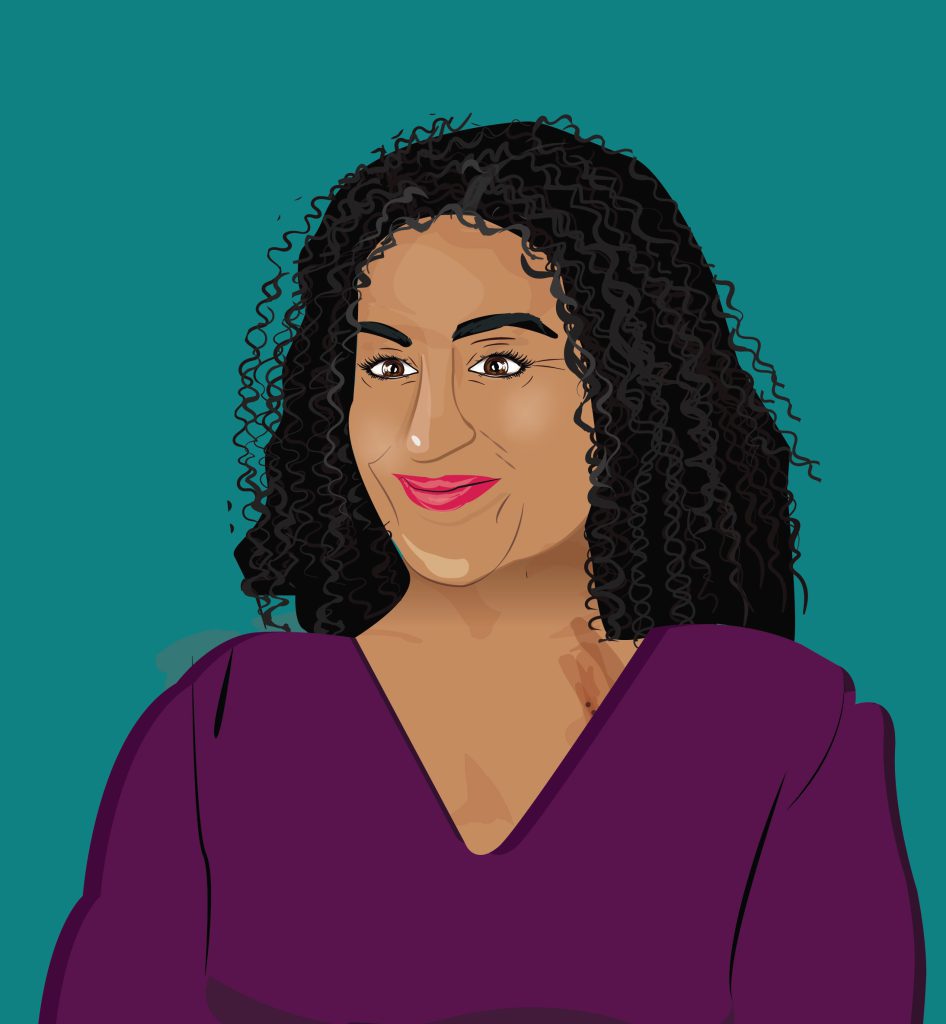
Dear Maasi is a column about everything you wanted to know about sex and relationships but were afraid to ask! It’s a partnership between Sahiyo and WeSpeakOut, and is for all of us who have questions about khatna (FGM/C) and how it impacts our bodies, minds, sexualities and relationships. We welcome you to submit your anonymous questions. Dear Maasi, Over the last year, I’ve been thinking a lot about khatna (FGM/C) and confronting my mother about it. We’re not very close (emotionally or geographically), but I do visit a few times a year, and she’s a terrific grandmother to my kids. We’ve never talked about khatna, so I have no idea about her current stance on it. I’m nervous that raising the topic will strain our relationship. But to be honest, every time I see her, I have an urge to ask her about it and I have a feeling it could help my own healing. Should I do it? –Naz Dear Naz, Thanks for this important question. In my last column, I offered advice to a mother who took her daughter for khatna (see Dear Maasi: Will My Daughter Ever Forgive Me?). She was in almost the opposite position as you. Talking about FGM/C with your mother could be fruitful and healing for you both. But keep in mind that a good outcome depends on whether you and your mother are ready and open for the conversation. I also want you know that having this difficult conversation is not required for healing. Everyone’s healing journey is different. In my case, healing came from writing and from leaning on a therapist, friends and my partner. I’ve never talked to the relative who was responsible for the khatna because we are not close. I no longer feel anger toward her, and while she hasn’t earned my forgiveness, I can feel compassion for her experience. But again, that’s me. Renée Bergstrom, an FGM/C survivor and activist from the U.S., had a different experience. Here’s what she told me about speaking to her mother: “I did not tell her about my difficulty giving birth or other problems until she was 96-years-old. I realized then that I had not forgiven her so I wrote a letter giving the details of what I had endured and she apologized by letter. She lived to be 101 and we were at peace as I sat by her bedside. She was free of guilt and I of resentment.” Here are some things to consider before beginning this process: #1 Rather than framing this as a “confrontation,” think of this as a conversation that requires some preparation. #2 What do you hope will happen? For example, are you seeking an apology? Closeness? More information? Are these outcomes likely with your mother? #3 How dysregulated/triggered do you feel when you think or talk about FGM/C? Ideally, you’d want to remain grounded. Consider doing “practice” conversations with supportive family, friends or professionals to check in about this. Try the Mumkin app if you need more practice. #4 These practice conversations might offer insights about how to begin in a calm, exploratory way. You might also learn what information you wish to share, and what you don’t want to disclose. #5 Some survivors can feel re-traumatized by a negative or defensive response. How might you feel if she: -Denies it happened? -Is pro-FGM/C? -Minimizes your concerns or says you are overreacting? -Gets angry with you for raising the conversation? #6 What support can you have in place if the conversation upsets you? One last note: FGM/C is an intergenerational trauma, so it’s likely that your mother experienced it too and might have her own unresolved trauma. Going in calmly and slowly is especially important given this. Naz, the bottom line is that there is no simple answer here. If you do have this conversation, may it go well for you and your mother. Healing from the harm of khatna is our birthright! —Maasi About Maasi, aka Farzana Doctor: Farzana is a novelist and psychotherapist in private practice. She’s a founding member of WeSpeakOut and the End FGM/C Canada Network. She loves talking about relationships and sexuality! Find out more about her at www.farzanadoctor.com Disclaimer: While Farzana is full of good advice, this column won’t address everyone’s individual concerns and should not be used as a substitute for professional medical or psychological care. For more resources on this subject, consider watching some Voices to End FGM/C videos (Convincing, Forgiveness, A Daughter, Conversations With My Mother), or contacting the support line for FGM/C survivors.
End FGM – Save our daughters
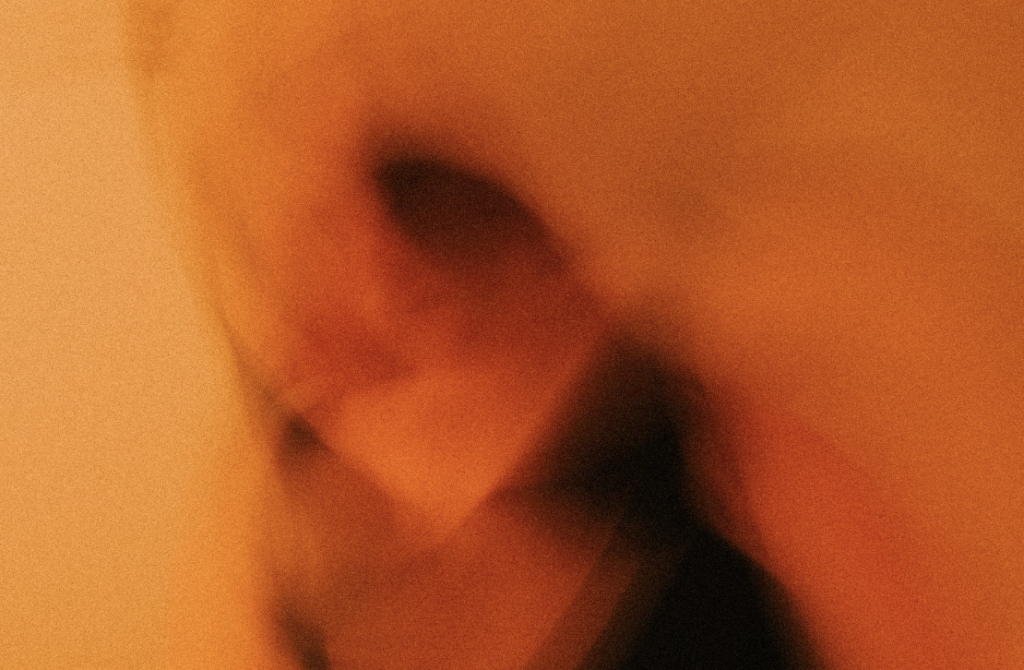
By: Arwa Country of Residence: India Today, I’m referring the most underrated topic ‘khatna’ or Female Genital Mutilation (FGM/C). I call it underrated because it doesn’t seem like educated persons in my society are talking about it even a little bit. It’s also called ‘Khafz’ in Islamic terms, and it’s a ritual in the Dawoodi Bohra community. Khatna usually takes place at the age of seven with girls. In the process of khatna, they cut the tip of the female sexual part ‘clitoris’ from the female genitalia with the use of a crude blade without giving any precautions. The purpose of doing that is to curb sexual desires. In some countries, it’s illegal, but India has no laws against khatna or FGM/C. The World Health Organization (WHO) considers it harmful for girls in many ways and has no health benefits. It includes damaging healthy tissues in females and causes trouble with the natural function of girls’ bodies. Many survivors have experienced pain, lifelong physical and psychological trauma. Some immediate complications include: Severe pain; Excessive bleeding; Vaginal infections; Wound healing problems; Shock; And in some cases death. Firstly, let me make this clear, I’m not against any religion but also do not support any religion in that way. What I mean is, I’m not against any religion but also I don’t have blind faith in it. I think there’s a major difference between beliefs and faith that our society needs to understand. I believe: If you do good, you will get good. I have read many articles on FGM/C. Community guidelines say ‘khafz take place for maintaining the taharat (pureness) and for spiritual purity.’ After reading it I felt like I would burn from inside, what has the world come down to. My heart was broken. Cutting out a human body part for spiritual purity; why would god give you something which makes you spiritually impure and then ask you to cut it off to become spiritually pure? I really don’t understand the logic behind FGM/C. What is the point of education that you are talking about? We are nurturing ourselves with modern education, reading about all atrocities going on in the world, when the same thing happens in our society; we are blind folded letting this happen. Many people have said that khatna is a good thing to do. It decreases sexual desires. So to that I ask, how do you know that a girl at age seven has sexual desires? Some had written in an article that it keeps the girl decent so girls won’t enter into adultery later, so on that I’m asking, where is the evidence of that? If we want our daughters to be pure, let’s teach them that they are strong and powerful women. They are in control of their own minds and bodies and they can use them wisely. When she was born, you promised to protect her. At the age of seven, they trust their family and parents the most. Parents tell them not to interact with strangers or not to let anyone touch you in your private areas, still it’s the family who takes them for khatna and allows strangers to touch and cut their girl’s clitoris. Why do something terrible to your girl which can leave scars on a mental level? People have to change their minds about old rules and regulations which they follow in the name of ‘tradition’. Families have a big role in ending FGM/C or khafz. Protect our girls. Our girls matter! I want to say a few things. I’m talking about this not for the sake of talking but for contributing to the voice that the Islamic religion (Bohra) seems to be avoiding. They have been avoiding it for years, but you can make sure they don’t avoid contributing by talking about this. Social media, I honestly believe, is one of the most powerful platforms. Otherwise also suppose- You are a teacher – you can probably discuss with your institution at the next assembly you can talk to your students about this. If you are in company you can hold a meeting in your office and talk about child abuse. Talk about this issue a little bit and tell people they need to speak up too. Maybe you can organise an activity or webinar regarding this issue. Whatever is in your capacity or power, do it please. It’s a harmful and outdated practice that needs to stop. Use your voice. It will definitely take time to go away but it doesn’t mean we keep sitting quietly. They are survivors, not victims. I’m a modern feminist and Bohra girl. I’m not a victim, I’m a survivor. I almost sat quietly, i didn’t talk about it but then I realised I must and so must you. Time to step forward for our daughters. Protest, speak up, fight for your daughters and let’s hope that the world changes for the better.
Sahiyo staff spoke in a symposia entitled Mothers and daughters: continuity, love, fear and belonging
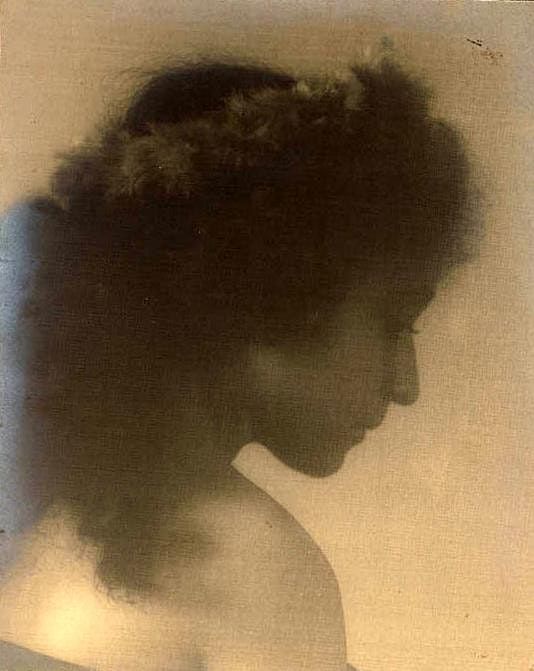
Sahiyo Communications Coordinator Lara Kingstone and co-founder Mariya Taher were honored to speak on behalf of Sahiyo in a symposia entitled, Patriarchal Inscriptions: Female Bodies Contested, Invaded, Defended & Owned, hosted by King’s College London Faculty of Arts and Humanities. [youtube url=”https://youtu.be/PZ3YZQxc7FM”]W The session that Sahiyo participated in served to address feminism, survivors’ relationships with mothers, other forms of gender-based violence and abuse, as well as systemic injustice. The symposia in general served to address the following questions: “Feminism has made the exploration of relations between mothers and daughters central to its project. How are these considered fraught, damaged, broken, or, in the eyes of FGM-supporters, strengthened by clitoridectomy? How does FGM compare to other abuses women endure that fracture their inclination to identify and support one another, instead of becoming invested in, or complicit with, systemic injustice?” Taher and Kingstone discussed and presented Sahiyo’s Voices to End FGM/C: Using Storytelling to Shift Social Norms & Enhance Prevention as part of the panel on Mothers and daughters: continuity, love, fear and belonging. Many storytellers and survivors explore fraught or strengthened relationships with their mothers in their digital videos as part of the Voices to End FGM/C program in collaboration with StoryCenter. By sharing these stories with participants, Sahiyo aimed to further understanding regarding the deeply complex mother-daughter relationship in the context of FGM/C. Read the full program.
મારા પર ખતનાની પ્રક્રિયા કરવામાં આવી હતી પરંતુ, મેં મારી દીકરી પર આ પ્રક્રિયા કરવા દીધી નહિં
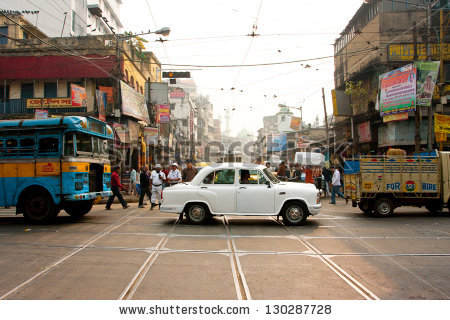
આ આર્ટિકલ પહેલા સહિયો દ્વારા તારીખ 04 એપ્રિલ 2017ના રોજ અંગ્રેજીમાં પ્રકાશિત કરવામાં આવ્યો હતો. Read the English version here. લેખક : અનામી વર્તમાન રહેવાસી સ્થળ : અમેરિકા જન્મ સ્થળ : ભારતઉંમર : 57 ભારતમાં 1966ના જુન મહિનાનો દિવસ હતો, હું સાત વર્ષની હતી અને મારી માં મને સમાચાર પત્રની એક સ્ટોરી વાંચી સંભળાવી રહી હતી. સ્ટોરી વાંચતા-વાંચતા આકસ્મિક રીતે જ તેણીએ આવતી સાંજે મારી દાદી સાથે “R” આન્ટીના ઘરે જવાની વાત કરી. મારી માં અને દાદી સાથે ક્યાંક બહાર જવા અને ત્યાં જવા કારમાં બેસવા માટે હું ઉત્સૂક હતી. જિજ્ઞાસાપૂર્વક મેં મારી માંને પૂછ્યું કે શા માટે આપણે “R” આન્ટીના ઘરે જઈ રહ્યાં છીએ, તેણીએ જવાબ આપ્યો કે એક મહત્વપૂર્ણ કામ કરવું જરૂરી હોવાથી આપણે ત્યાં જઈએ છીએ. ત્યાં જતી વખતે કારમાં મેં મારી માં અને દાદીને એવી વાતચીત કરતા સાંભળ્યા કે જો “R” આન્ટીના ઘરે તેમને પાણી આપવામાં આવે તો તે સ્વીકારવું નહિં કારણ કે, તેણી જે કાર્ય કરે છે તેને ખરાબ માનવામાં આવે છે. જાણવા આતુર મનને કારણે મેં મારી માંને મને એ બાબત સમજાવવા માટે ક્યું પરંતુ, તેણીએ મને “આ બાબતને સમજવા માટે તું હજી ઘણી નાની છે” એમ કહી ચૂપ રહેવા કહ્યું. “R” આન્ટીના ઘરે પહોંચતા અમને ઉપરના માળે એક મોટા હૉલમાં બેસાડવામાં આવ્યા. થોડી મિનીટો બાદ, તેણીએ અમારી સાથે બેસીને થોડી વાત કરી. ત્યારબાદ, તેણી અન્ય એક ઓરડામાં ગઈ અને એક સફેદ ચાદર લઈને પાછી આવી જેને તેણીએ જમીન પર બીછાવી. તેણીને આમ કરતા હું મૂંઝવણ ભરી નજરે તેની સામે જોતી રહી. ત્યારબાદ, તેણીએ મને નીચે આવી ચાદર પર સૂઈને આંખો બંધ કરી દેવા કહ્યું અને મેં તેણીના કહેવા પ્રમાણે કર્યું. તેણીએ મને અન્ય એક ચાદર ઓઢાડી અને મારી પેન્ટી નીચે સરકાવી. ત્યારબાદ મને નીચે ચીમટી જેવી પીડા થઈ અને હું ચીસ પાડવા લાગી. તેણીએ મને ચિંતા ના કરવાનું કહ્યું. કામ થઈ ગયું હતુ. ઘરે પાછા ફરતી વખતે મને અસ્વસ્થતા મહેસુસ થઈ અને મારી માંએ મને કહ્યું કે ચિંતા કરવા જેવુ કંઈ નથી, તને જલ્દી સારૂં થઈ જશે. જ્યારે અમે ઘરે પહોંચ્યા ત્યારે મારે બાથરૂમ જવું હતુ અને ત્યારે મેં તેમાંથી થોડુ લોહી નીકળતુ જોયું. લોહી જોઈ મને થોડો ડર લાગ્યો. ફરી મારી માંએ મને સમજાવી કે બધુ સારૂં થઈ જશે. મેં તેણીને પૂછ્યું કે શા માટે આપણે “R” આન્ટીના ઘરે ગયા હતા અને શા માટે મારા પર આ પ્રક્રિયા કરવામાં આવી. તેણીએ જણાવ્યું કે “બધી નાની દીકરીઓ પર આ પ્રક્રિયા કરવામાં આવે છે.” થોડા દિવસો બાદ હું આ ઘટનાને ભૂલી ગઈ. જ્યારે હું મોટી થઈને મારી મીસાકની ઉંમરની થઈ ત્યારે મને સમજાયું કે કોઈપણ યોગ્ય કારણ વિના મારા ગુપ્ત અંગ સાથે કંઈ છેડછાડ કરવામાં આવી છે. એવુ કંઈ જે એટલુ બધુ મહત્વપૂર્ણ નહોતુ. તે વિષે મારી માં સાથે વાત કર્યા પછી, મને જાણવા મળ્યું કે પરંપરા હોવાના કારણે તેણીએ મારી સાથે આમ કર્યું. તેણીએ પણ આ પ્રક્રિયા હેઠળથી પસાર થવુ પડ્યું હતુ. તેનું કોઈ ધાર્મિક મહત્વ નહોતું. વર્ષો વિતી ગયા અને એક દિવસ હું પણ માં બની. જ્યારે મારી દીકરી એ ઉંમરની થઈ ત્યારે મેં નિર્ણય કર્યો કે હું તેણીને આવો માનસિક ત્રાસ નહિં આપું, જેને ફક્ત પરંપરાના નામે અનુસરવામાં આવે છે અને જેનું ધાર્મિક દ્રષ્ટિએ કોઈ મહત્વ નથી. જ્યારે મેં આ નિર્ણય કર્યો ત્યારે ના તો મારી માંએ કે ના તો મારી સાસુએ તેનો વિરોધ કર્યો. મારી દીકરીને આ અગ્નિ પરિક્ષા આપવા માટે તેમણે મને દબાણ કર્યું નહોતું. સમાપ્ત કરતા પહેલાં, હું એટલુ કહેવા ઈચ્છું છું કે હા, આ પ્રક્રિયાએ મારી સેક્સ લાઈફ પર નકારાત્મક અસર કરી છે અને હું નથી ઈચ્છતી કે મારી દીકરીઓને જીવનમાં આવી કોઈ મૂશ્કેલીઓનો સામનો કરવો પડે.
To each his own! A perspective on Female Genital Cutting by a Kuwaiti Bohra
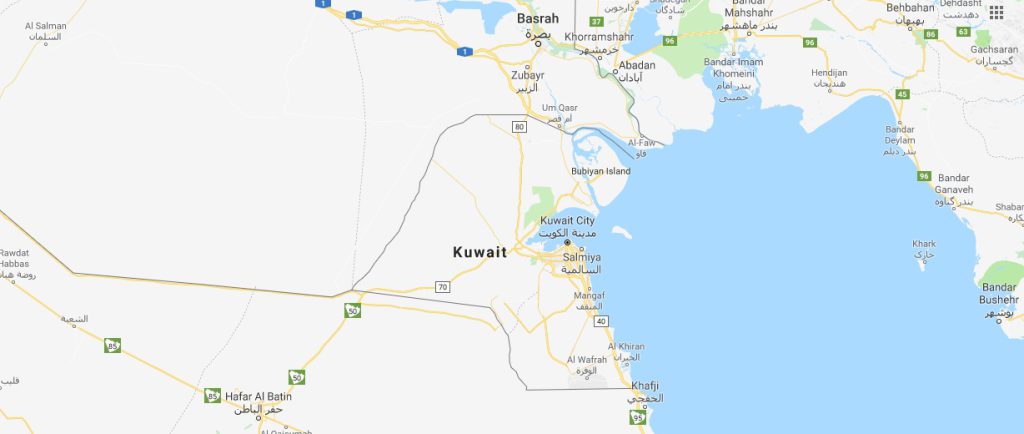
By Anonymous Age: 29Country: Kuwait I was 7 years old when Khatna happened during my summer vacation to India. I am sure my mother must have looked for other avenues to have khatna done on me in Kuwait but unfortunately since Kuwait is such a strict Muslim country wherein even an abortion is prohibited, she had to take me to India. The mid wife convinced me that she was trying to remove a (non-existent) worm from my privates, that too in a non-medical set up. I remember her surgical toys, how she just laid me on the floor and boom I spat out a loud cry!! Funny part, there was a boy my age there who was also getting a circumcision. Good for his penis! I remember what happened but I never knew the actual reason for it until I went to college and met another well-read Bohra girl who then enlightened me that what had happened to me was not something normal, it was not right! I really didn’t understand what she meant, but then I researched and read about all types of FGM being performed and I realized what happened to me was Type 1. I even asked my other Muslim friends if they were circumcised. Of course the answer was, “What the hell are you even talking about?” I didn’t know how to confront my parents about it because all my life I just thought khatna must be essential just like a vaccination of some kind. When I did confront them, it was so upsetting for me to learn that they didn’t even feel sorry for what they did to me. They simply said it was a tradition that Bohras have been following for years and if I want, I have the will to not continue this for my daughters. Simple! I am enraged even as I write this. I had to accept my fate and move on but I did make them realize that what they did was wrong and unnecessary. I am 29 today and no, I don’t face any of the issues that have been discussed on this forum like being depressed, traumatized, or broken. And no, I don’t face any issues with an orgasm or stimulation. But again, that does not mean that I support this nonsense. The simple pleasures of life that god has bestowed upon us, why should anyone take that away from us? I did visit a gynecologist recently and I had to ask her to check if my clitoris looks normal. Her response was “It’s almost there.” From what I understand, Type 1 FGM is where they remove the clitoral hood. My doctor said that my hood is very much there, but a snip on my clit was visible enough to know that something was wrong. She seemed confused and that’s when I had to explain to her that Khatna happens in India too. She was shocked as it was new information for her. She was from Chennai; little does she know it’s probably being practiced there too. Whenever I end up in a discussion about Khatna with my Bohra friends who have cut their daughters, they have no space for a logical debate. There are also parents who are aware of this wrongdoing and who have decided not to practice this on their daughters, but they are not involved in any sort of a debate with others. Which is great and it’s the best way to deal with it. To each his own! I have been following Sahiyo on Twitter and I do read the chain of ongoing debates. And in between I come across arguments by Bohra doctors who support this illegitimate act with on the grounds of equal rights between men and women for circumcision. It made no sense to me, but one male doctor said that if men can be circumcised for medical reasons, women in our community have the rights to do so as well for hygienic reasons. Really? I still have had a UTI and Candidiasis even after being circumcised! To that doctor: it’s great that you care about us so much, but if that’s the case, then ask us for our consent on this matter. We have the right to say yes or no just like in our marriages. Educate us about khatna in the madrasas. Teach us the medical benefits of this act. Enlighten us but only when we have hit puberty and not when we are naïve and gullible. Allow us to do our own research and decide for ourselves whether we want to get snipped or not.
ખત્ના કરાવવી કે નહીં? આપણી દીકરીઓને મોટી થવા દો અને જાતે નિર્ણય લેવા દો
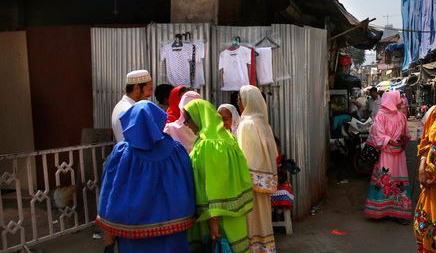
લેખિકા : ઈન્સિયા વય : ૩૪ વર્ષશહેર : મુંબઈ, ભારત હું એક જાણીતા અને સુશિક્ષિત પરિવારની સભ્ય હોવાથી મને હંમેશા કશુંક જુદું વિચારવાની તક મારા કુટુંબે આપી છે. અમારી કોમના નિયમોને ધ્યાનમાં લીધાં વિના, મારા માતાપિતા હંમેશા મને ટેકો આપતા આવ્યા છે. મને શિક્ષણ અપાયું હતું અને મારા ભાઈઓની જેવા સરખા અધિકારો અપાયા હતા. મારી વાતની કદી ઉપેક્ષા નહોતી કરાતી અને મારા અભિપ્રાયોને ધ્યાનમાં લેવાતા હતા. હું એક દીકરી હતી, પરંતુ મારી સાથે એક દીકરા જેવા વ્યવહાર કરાતો હતો. પણ અમારી કોમ સહેજ વધુ એકબીજાની સાથે નજીકથી સંકળાયેલી હોવાથી, મારે શું કરવું જોઈએ તે વિશે બોલવાનો દરેકને અધિકાર હતો. મારા પરિવારમાંની તમામ મહિલાઓ અમારા પર તેમના વિચારોને પ્રભાવ પાડી રહી હોવાથી, મારી વય જ્યારે સાત વર્ષની હતી ત્યારે મારી માતા સંમત થયાં હતાં કે મારે ખત્ના કરાવવી જોઈએ. એ દિવસ મને આજે હજી પણ સ્પષ્ટપણે યાદ છે. મારી ખત્ના કરાવવા માટે મારી માતા અને માસી પુણેમાં આ મહિલાના ઘરે લઈ ગયાં હતાં. કદાચ હવે દુ:ખાવો મને યાદ નહીં આવે, પરંતુ એ દિવસનો ભય, ઉદાસીનતા અને અવિશ્ર્વાસ હજી કાયમ છે. મારી અનેક પિત્રાઈ બહેનો હજી મને પૂછે છે, ‘‘જે કંઈ બન્યું તે વિશે તું શા માટે આટલી બધી વ્યથિત છે? શું તેથી આપણે કોઈ પણ રીતે બદલાયાં છીએ?’’ હું સંમત થાઉં છું કે ખત્નાથી સેક્સ (જાતીય સુખ) માણવા પ્રત્યેની મારી ઇચ્છા કદાચ નહીં બદલાઈ હોય, પરંતુ આપણી માતાઓ પ્રત્યેનો મારો દૃષ્ટિકોણ બદલાયો છે. જેઓ આપણને એવું જણાવે કે આપણને બળજબરીથી કોઈ સ્પર્શ કરે, ખાસ કરીને આપણાં ગુપ્તાંગોને સ્પર્શ કરે એ ખોટું છે, પરંતુ તો પછી તેઓ જાતે એક અજાણી મહિલાની પાસે શા માટે લઈ જાય છે? જે આપણી પેન્ટ ઉતારી પાડે છે અને આપણને સ્પર્શ કરે છે? આપણી માતાઓ અને માસીઓ-કાકીઓ કેમ એવું નથી વિચારતાં કે સાત વર્ષ એવી વય નથી કે જે વયે બાળકો તેમની સાથે શું કરાઈ રહ્યું છે, તેને સમજવા કે તેનો વિરોધ કરવા પૂરતા પ્રમાણમાં સક્ષમ છે. તેમને એવી પ્રતીતિ કેમ નથી થતી કે આની આપણા પર એવી માનસીક અસર પડશે કે જે પાછળથી આપણાં માતાપિતાને તેમના નિર્ણય બદલ ખેદ દર્શાવતાં કરી મૂકશે. બાળજન્મની વેદના મને યાદ નથી, પરંતુ મેં અનુભવેલી લાગણીઓ મને આજે પણ જેમની તેમ યાદ છે. આજની કુમળી કન્યાઓ માટે પણ આ વાત લાગુ પડે છે. પુખ્ત વયની મહિલાઓ માટે ખત્નાની પ્રથા નાબૂદ કરવી જોઈએ કે નહીં તેનો નિર્ણય હું લઈ નહીં શકું, પરંતુ કુમળી કન્યાઓની ખત્ના નહીં કરવી જોઈએ એવું મારું ચોક્કસપણે માનવું છે, બાળપણ તમારાં બાળકોને એવી ખાતરી કરાવવા માટે હોય છે કે તેઓ સુરક્ષિત છે અને તમે તેમને નહીં ડરાવો એવો તેમને વિશ્ર્વાસ હોય છે. આપણી કન્યાઓને મોટી થવા દો. તેમના શરીરમાં આપણે જે કોઈ ફેરફારો કરવા માગીએ છીએ તે વિશે તેમને માહિતગાર કરો. આપણા મઝહબ વિશે આપણાં બાળકોને આપણે કેળવીએ, નહીં કે પ્રથા-રિવાજો વડે તેમને ગભરાવીએ. મને ખબર છે કે ઘણા લોકો મારી વાત સાથે સંમત નહીં થાય અને ભલે તેઓ અસંમતિ દર્શાવે. કારણકે હું ફક્ત મારો દૃષ્ટિકોણ રજૂ કરવા માગું છું. હું બે દીકરીઓની માતા છું. મને ખબર છે કે મારી અથવા અમારા વડીલોની માન્યતાઓને અનુસરવાની તેમને ફરજ નહીં પાડીને તેમના જીવનને હું બહેતર બનાવી શકું. હું તેમને એવી કેળવણી આપવા માગું છું કે આપણી કોમ એક એવી પ્રગતિશીલ કોમ છે, જ્યાં આપણે આત્મવિશ્ર્વાસી, શિક્ષિત મહિલાઓ છીએ, જેઓને ઉદ્યમશીલો (કામકાજમાં પાવરધા) બનવા માટે શિખવાડાયું છે અને આપણે ઇચ્છીએ છીએ એવો રસ્તો પસંદ કરવાનો અધિકાર તેઓ ધરાવે છે. આપણી કોમમાંની દીકરીઓની તમામ માતાઓ, કૃપયા હું શું જણાવી રહી છું તે વિશે સહેજ વિચાર કરે. આપણી દીકરીઓને મોટી થવા દો અને પોતાની પસંદગીઓ કરવા દો. તેમના વતી આપણે નિર્ણયો નહીં લેવા જોઈએ. This article was published in English on May 29, 2017. You can find the English version here.
To cut or not to cut? Let our daughters grow up and decide

By: Insiya Age: 34Country: Mumbai, India As I belong to a well-known and educated family, I was always given a chance to think outside the box. My parents were always supportive irrespective of what our community norms were. I was educated and given the same rights as my brothers and my voice was never unheard and my opinions were also considered. I was a daughter but treated as a son. But as our community was a little more tightly knitted, everyone had a say in what happened to me, and with all the women in my family influencing us, my mom agreed at the age of seven that I would have to go through the ceremony of Khatna. I still remember that day clearly. My mom and masi (aunt) took me to this woman’s house in Pune to get the job done. I might not remember the pain now, but the fear, the sadness and distrust from that day remain. I know many of my cousins still ask me, “Why are you so upset about what happened? Has it changed us in any way?” I agree Khatna might not have changed my desire towards sex, but it has changed my outlook towards our mothers who told us that anyone who touched us forcefully was wrong, especially in our private areas, but then they, themselves, took us to an unknown woman, a stranger who pulled down our pants and touched us. How is what this stranger did any different from sexual abuse? Why don’t our mothers or grandmothers or aunts think that seven is not an age where children are old enough to understand what is happening to them? Why don’t they realize that this may leave an impact on us that might make our parents regret their decision later on? I don’t remember the pain of childbirth, but I remember the emotions I felt. That’s the same for these little girls. I don’t think I can decide if Khatna should be abolished or not for adult women, but, I am sure Khatna shouldn’t happen to young kids. Childhood is about making sure your kids are safe and that they trust you to not scar them. Let our girls grow up. Inform them of any changes that we might plan to do to their bodies. Let’s educate our kids about our religion, not scare them into practices. I know many people who will disagree and they are welcome to do so, as I only want to share my point of view. I am a mom of two girls. I know I can make their lives better by not forcing them into my or our elders’ beliefs. I want to educate them that our community is a progressive community where we are confident, educated women, who are taught to be entrepreneurs, and who have the right to choose the path we desire. For all the mothers of daughters in our community, please take the time to think about what I am saying. Let our daughters grow up and make their own choices. Let’s not decide on their behalf. This article was published in Gujarati on December 5, 2017. You can find the Gujarati version here.
I underwent Khatna but did not let it happen to my daughters

By: Anonymous Country of Current Residence: United StatesCountry of Birth: IndiaAge: 57 It was a day in June, 1966, in India. I was seven years old and sitting with my mother, listening to a story she read to me from a newspaper. Midway through reading the story, she casually mentioned to me that we were going to Aunty R’s house the next evening with my grandmother as well. I was excited to go somewhere with my mother and grandmother, and to take a car ride to get to the place. Out of curiosity, I asked my mother why we were going over to Aunty R’s house, and she told me we were going for something very important that needed to be taken care of. On the car ride there, I heard my mother and grandmother discuss that they could not accept water to drink from Aunty R if it was offered to them, because the work she carries out is considered dirty. Being of an inquisitive mind, I asked my mother what she meant. She shushed me and said, “You are too little to understand.” On reaching Aunty R’s house, we were sent upstairs and sat down in a big hall. A few minutes later, she joined us and sat with us and talked for a bit. Then, she went inside another room and came back with a big white sheet which she spread out onto the floor. As she did this, I watched her movements with a lot of confusion. She then asked me to come lie down on the sheet and to shut my eyes, which I did. She covered me with another sheet and pulled my panty down. The next thing I felt was a pinch down there, and I screamed. She told me not to worry. All was done. On our way home I felt discomfort and my mother told me that all would be fine and that there was nothing to worry about. When we reached home I needed to use the bathroom and saw some blood oozing out of me. It scared me a bit. Again, my mother convinced me that all would be fine. I asked her what our trip to Aunty R’s was about and why I had to undergo it. She said, “all little girls go through that procedure.” After a few days, I forgot about the incident. As I grew older and I went into my teen years I realized that for no good reason something had been done to my private part. Something that was not very much required. After speaking to my mother about it, I realized she had gotten it done to me only because it was a tradition. She had gone through the same process. It had no religious significance. Years went by and one day, I became a mother too. When my daughter came of age, I made the decision that I would not let her go through this mental torture, which was just a tradition and had nothing to do from a religious standpoint. When I made this decision, neither my mother nor my mother-in-law objected to it; they did not pressure me into having my girls undergo the ordeal. To conclude, I would like to add that it definitely did affect my sex life negatively and I did not want the same to be true for my girls. This article was later posted in Gujarati. Read the full article here.
From birth to motherhood, a Singaporean Malay’s experience of Female Genital Cutting
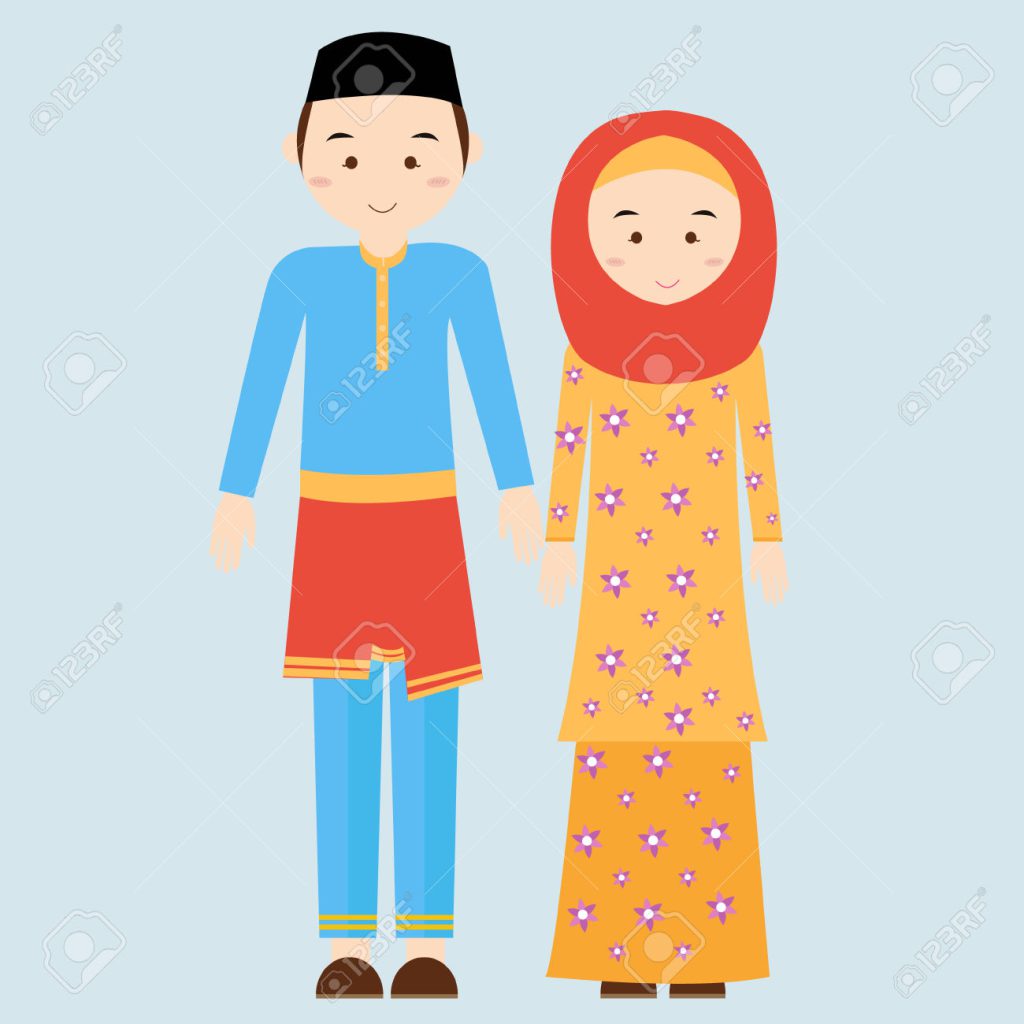
By: Anonymous Country: Singapore Community: Malay Muslim Growing up: I was told as a child, that every girl had to go through it. There is basically NOBODY that you know who hasn’t gone through it. And I BELIEVED everything my mother said. Perceptions Ingrained in our Minds: It is dirty, unhygienic, curbs your sexual desires. Basically, what their mothers tell them, they relay it back to us. Working adult: I became a nurse. I studied, learned, saw the anatomy of the human body. As a nurse, I cleaned the vagina of women of different ethnicities. Of course, I noticed the difference. They had the hood and the two labia folds, and I did not. At that time, as a Malay Muslim, I firmly believed that “my vagina is cleaner” than those who were not circumcised. I felt I belonged to a much “higher status” because I was “cut” and they were not. My fellow female Muslim nurses shared the same sentiments. Marriage: I had an inter-racial Muslim marriage. I realized my sexual desire plummeted and I wasn’t really interested in sex much longer. I had a private conversation with my husband about it, and he was surprised that FGC was done in many Asian countries. He mentioned that as a Muslim himself, in his own country, FGC was not done. In his country none of his sisters underwent FGC. Delivery: I had a natural home birth for my first born daughter, assisted by my own husband. The way the delivery occurred was unplanned, but it was the most beautiful experience for us both. Post-Partum Worries: The natural delivery left a stinging burning sensation on my clitoris region. I naturally thought it will go away. But it prolonged much longer that I expected. A few months passed, and I still felt a strange sensation in my clitoris region. When I urinated, it felt like someone had punched me – it was sore. I refused to go for a health check-up as I didn’t want ANYONE to touch me. I didn’t want to touch it myself. It’s coming to 10 months now past my baby’s birth, and my husband and I haven’t resumed sex yet. At first, I was fearful of the pain that might arise. Then, I didn’t want to experience any more intermittent sore sensation in my clitoris region. Thirdly, I didn’t have the sexual drive or desire mainly because I was breastfeeding. I deeply pondered: Why am I still feeling this? Why does it still felt sore? Is it because of the FGC that my mother made sure I underwent when I was still a baby? I haven’t talked to my mother about it yet. I guess no one talks openly about it. They just “snip it” when you’re a baby and everyone stays silent about it. I had many questions in mind! Was it done by trained personnel? Does the answer to that question matter anyway, since it’s wrong to do it? My Baby and Social Pressure about FGC: My mother kept insisting that I bring my baby for “sunat” to the clinic. She said it will be “over before you know it” – swiftly done. My husband, on the other hand, refused to have it done to our daughter. He said women in his country did not have it done. I started my own journey of reading and gaining more knowledge on FGC. In 2016, at 30 years of age, it affects me now. I was upset that my mother did it purely due to social pressure. Even if you’re an educated woman, social pressure can still influence the way you make a decision. I was in a mosque a few weeks back, a lady in her 50-60s approached me and chatted about my baby. She handed me her name card which indicated her business services. It read, “sunat perempuan”. I was shocked and disappointed. It is 2017, and still, this is being done by an unlicensed passerby who easily roamed the community promoting her services. At present: I joined a Facebook Group for young mothers in Singapore where women’s topics are discussed. One of the issues asked by many young mothers is “WHERE can I take my NEWBORN DAUGHTER for sunat? Which clinic is best?” This question showed that young educated mothers are still unaware of FGC and its non-relation to Islam. They continue it because THEIR own mothers tell them to do it or that it is the NORM to perform “sunat” after you give birth to your newborn. There they go, commenting and discussing the rate of several clinics, the packages that come with it (Ear Piercing + Sunat) and their good experience with the doctors who provided such packages to benefit themselves. Every time I see such questions, I cringe. I commented on those posts about FGC but nobody has taken notice of my comments. Yes, I do hear mother’s voice that they are fearful to see the procedure done on their baby girls, YET they want it done. How conflicting! Other mothers who had undergone it with their newborn baby girls started giving reassurance that “it’ll be over before you know it. Stay strong mummy!” Subsequently, I messaged the mothers privately and gave them social media links (videos/texts) to educate themselves on FGC, especially on Islamic & social views. It’s still a very long road to adjust the mindset of the Singapore Malay Muslim community on FGC. It’s done openly without a tinge of guilt in their hearts. I’m sad it was done on me but I will NEVER let it happen to my offsprings.When we educate the women, we educate the entire nation. Women have to choose wisely what is right and wrong. Don’t succumb to social pressure – just because everyone is doing it, doesn’t make it right.
Dear daughter, I am sorry you were circumcised
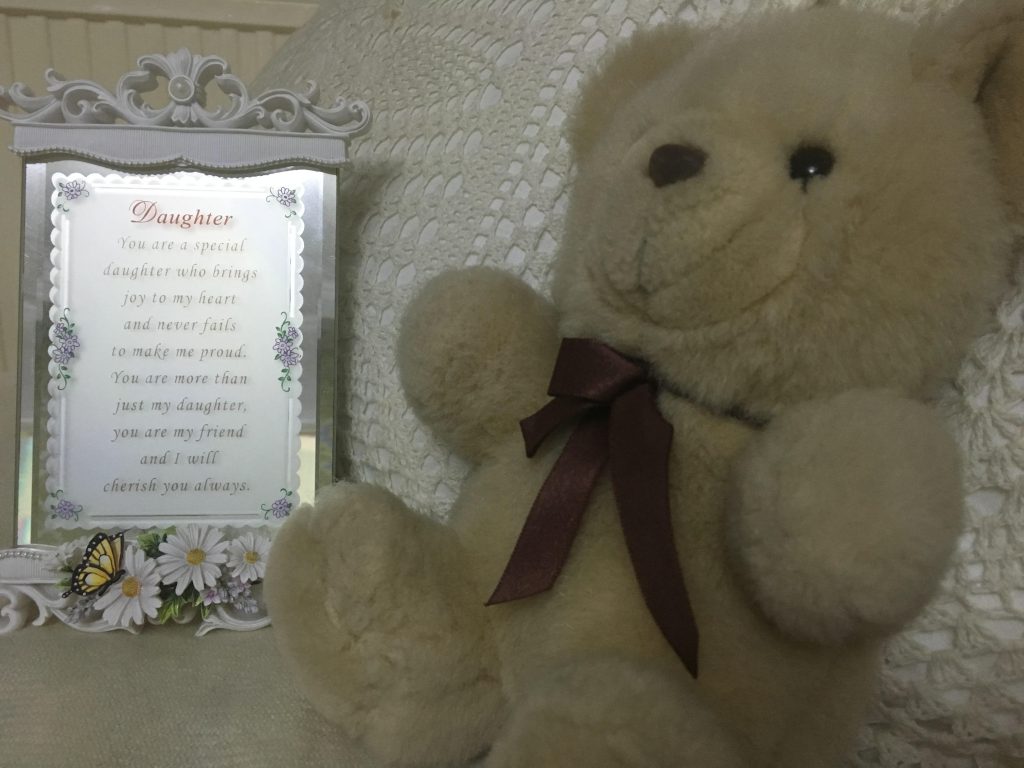
(First published on May 24, 2016) A heartfelt letter from a Bohra father, who wished to remain unnamed, to his grown-up daughter. Read the Gujarati translation of this letter here. Dear Daughter, Many years ago, I made a mistake. Your mother came to me and said “I’m going to have our daughter circumcised.” I knew nothing about this procedure, assuming that your mother knew best. My ignorance is no excuse for what you went through. I’ve asked your mother many times since this occurred, why an educated woman who resides in a country where this is illegal subjected her daughter to this practice? I never received a valid reason. Simply saying that “it’s in our religion” is not a good enough answer for me to accept that my daughter went through this. When I read your account of what happened, my eyes filled with tears. For all of these years I was oblivious to the trauma that you underwent. You were an innocent child. I wonder how many other fathers are in the same position as me – finally learning about this heinous practice and unaware of how their daughters have silently struggled with this for so many years. I remember the first time I held you in my arms and thought to myself “she’s perfect”. You were my little miracle, after years of wanting a daughter, you finally arrived. I’m sorry that something was removed from you, because there was nothing wrong with you to begin with. I know that it is your upbringing and your strong values that prevent you from sinning and nothing else. To think that you were only 5 years old, completely oblivious to what was happening to you and frightened, I’m sorry that I wasn’t there to protect you. Ignorance is never an excuse. Nor is it acceptable to turn a blind eye. I promise you that I will do everything in my power to support the noble cause of finally putting an end to this practice – and ensuring that other fathers become aware of what goes on behind closed doors. A crime against girls, committed by those who love them due to incorrect beliefs and reasons. One day, when you become a mother, I will stand behind you, like I should have done years ago and ensure that this family’s next generation never has to suffer the way that you did. All my love, Dad
